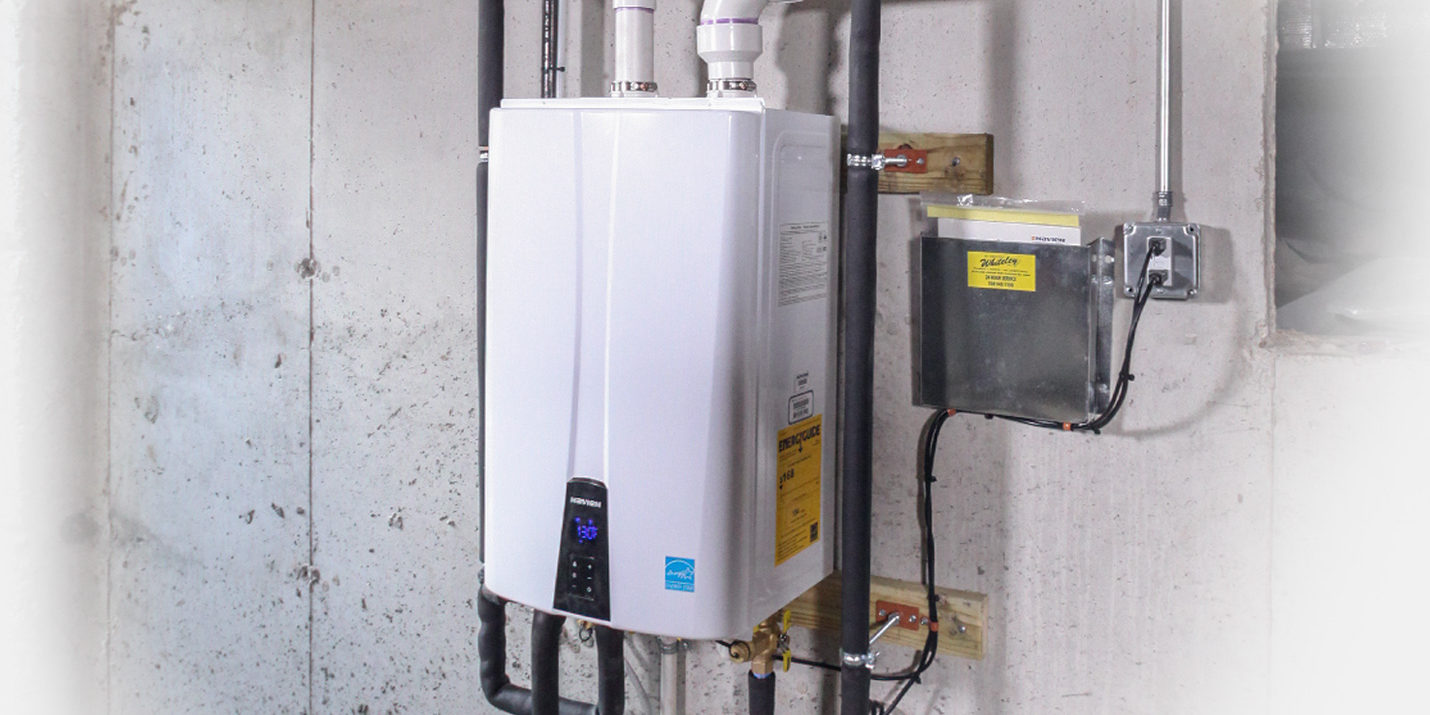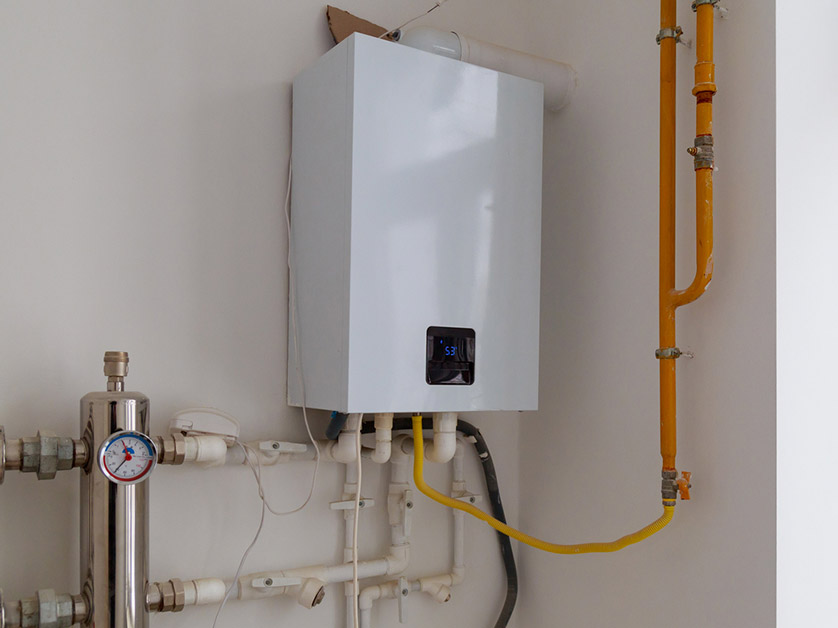Top Drivers Why Tankless Water Heaters Stand As Beneficial
Top Drivers Why Tankless Water Heaters Stand As Beneficial
Blog Article
Have you been trying to find details about Pros and Cons of Tankless Water Heater?

In a world where comfort and effectiveness reign supreme, it's not a surprise that homeowners are constantly looking for smarter means to handle their home's energy usage and comfort. One innovation that has actually gradually gained appeal is the tankless hot water heater. Yet what exactly makes these systems attract attention from the conventional tank-based versions most of us matured with? Allow's dive in and discover the advantages of tankless hot water heater, helping you make a decision if it's time to make the switch in your home.
Intro
Picture this: you enter the shower after a long day, anticipating a comforting cascade of warm water, just to be greeted by icy beads due to the fact that the last individual utilized it all up. Noise familiar? Typical hot water heater keep a fixed quantity of warm water, meaning you're at the mercy of that container's supply. Tankless systems, on the other hand, warmth water on demand. No more going out mid-shower, say goodbye to fumbling with timetables just to ensure hot water is offered.
Recognizing Tankless Water Heaters
What Are Tankless Hot Water Heater?
Tankless water heaters, often referred to as on-demand or instantaneous hot water heater, offer hot water only as it's needed. Rather than saving gallons of pre-heated water, these systems kick into action the minute you activate the tap. Water passes through a warmth exchanger, heating up in real-time, indicating you get a continuous circulation of warm water without the demand for a huge tank resting idly by.
Just how Do They Differ from Typical Solutions?
Typical heating systems hold a reservoir of hot water, using power to maintain that container at a constant temperature level. Tankless devices eliminate the standing supply, cutting down on lost power and the bulky impact of a huge cyndrical tube. Basically, you're upgrading from a "stockpile" frame of mind to a "made-to-order" approach.
Usual Types of Tankless Units
Tankless hot water heater normally come in 2 varieties: gas and electric. Gas designs often tend to deliver greater circulation rates, suitable for larger houses, while electric models commonly offer smaller sized homes and are typically simpler to set up. Furthermore, some systems are developed for point-of-use (offering one fixture) while others can deal with the entire home's warm water demands.
Trick Advantages of Tankless Water Heaters
1. Unlimited Warm Water Supply
Ever had to set up showers so every person gets their reasonable share of warm water? With tankless, that comes to be a thing of the past. As long as the heater's circulation capability isn't surpassed, you can take back-to-back showers without becoming a popsicle.
2. Energy Performance and Cost Financial Savings
No more heating a giant container's worth of water and keeping it cozy throughout the day. Tankless heating systems decrease standby power losses, which can decrease utility bills. While the initial cost might be higher, the long-lasting cost savings often warrant the financial investment.
3. Space-Saving Layout
If your home is short on storage space, eliminating the cumbersome container frees up useful space. Tankless systems are compact and can commonly be placed on walls, concealed in edges, or installed in tight energy wardrobes without grabbing all of the whole space.
4. Longer Lifespan
A well-maintained tankless hot water heater can outlast its tank-based cousin. Traditional storage tanks might last 10-15 years, while tankless versions can keep chugging along for two decades or more, making them a solid financial investment in time.
5. Improved Water Quality
Keeping water in a storage tank can often bring about sediment accumulation or a slightly "off" taste. With tankless systems, fresh water is heated right away, lowering the possibilities of sediment build-up and possibly offering cleaner-tasting water.
Considerations Prior To Changing
Though the benefits are compelling, it's wise to take into consideration a couple of factors before completely devoting.
First Investment Prices
Tankless heating systems typically feature a higher ahead of time price. Between the device itself and prospective installation alterations, the initial price may offer you sticker shock. Yet remember to see it as a long-lasting investment.
Installment Needs
Depending on your home's framework, you could need added electric capacity or gas line upgrades. Ensure you comprehend the installment requirements and consult with an expert to avoid shocks.
Evaluating Your Home's Water Usage Patterns
If your household simultaneously utilizes several fixtures with high hot water demand, ensure the unit's flow rate satisfies your needs. Knowing your usage patterns aids you select the appropriate dimension and kind of tankless heating unit.
Maintenance and Treatment Tips
Tankless systems are fairly reduced maintenance, but they aren't set-it-and-forget-it devices.
Routine Cleaning and Descaling
Tough water minerals can build up in the heat exchanger, influencing performance. Normal descaling (frequently suggested annually) maintains the system performing at peak performance.
Yearly Expert Assessments
A yearly checkup from an expert guarantees minor concerns are caught early. They'll analyze the device's performance, try to find leakages, and help maintain optimum effectiveness.
Making Certain Proper Ventilation
For gas designs, correct ventilation is essential to safely eliminate exhaust gases. See to it venting systems are tidy and appropriately set up to stop any type of prospective safety and security risks.
Contrasting Different Brands and Models
Not all tankless water heaters are produced equal.
Researching Reputable Manufacturers
Search for credible brands with a history of generating quality devices. A reliable producer commonly provides better customer support and longer warranties.
Reading Reviews and Individual Comments
User reviews and responses from neighbors or pals who have gone tankless can offer useful understandings. In some cases, real-life experiences can be more telling than advertising and marketing brochures.
Setup: Do It Yourself or Professional?
While some house owners enjoy dealing with tasks themselves, tankless installment could not be the best time to break out the toolbox.
Benefits and drawbacks of DIY Installment
A do it yourself mount might conserve money, yet it features threats. Wrong installment can cause ineffectiveness or security concerns. If you're handy and have experience, it could be viable-- yet proceed with care.
When to Call an Expert Plumbing Technician
For many, calling a professional makes certain every little thing's done properly. A professional plumbing technician recognizes regional codes, sizing needs, and venting parameters, minimizing the risk of problems.
Making best use of Efficiency
You have actually bought a tankless device-- currently optimize its effectiveness.
Ideal Temperature Level Setups
Most people set their systems in between 120-140 F. Adjusting the temperature can enhance convenience and financial savings. Experiment to locate a sweet area that does not waste energy.
Coupling With Low-Flow Fixtures
Wish to stretch your system's capacities? Take into consideration mounting low-flow showerheads and taps. They lower water use, permitting your tankless system to supply a consistent stream of warm water without straining.
Ecological Influence
Tankless water heaters align with greener living goals.
Decreased Carbon Footprint
By utilizing much less power and only home heating water as required, tankless systems can reduce your home's carbon footprint, reducing your environmental effect.
Conserving Natural Resources
Much less energy intake and less wasted hot water translate into less natural deposits being utilized, an ecological win-win.
Who Profits Many from Tankless Heating units?
The beauty of tankless heaters is that they can fit a selection of households.
Large Households vs. Single Residents
Large families could enjoy the countless warm water supply, while solitary residents appreciate the energy cost savings from not heating an entire container for simply a single person's early morning shower.
House Owners with Restricted Space
If your home is short on square video, losing the bulky tank frees up area for other fundamentals-- or perhaps simply much more breathing space.
Eco-Conscious Consumers
Going tankless aligns with environmentally friendly values, guaranteeing you're not squandering energy or sources.
Future Trends in Tankless Water Heaters
The globe of home appliances is ever-evolving, and tankless water heaters are no exception.
Smart Home Integration
Picture changing your hot water heater's temperature through an application or obtaining upkeep alerts on your phone. As wise home tech advancements, we'll see even more connection and comfort.
Innovations in Technology
R&D is constantly enhancing warm exchangers, making systems much more efficient and durable. Future models might be even quieter, extra portable, and much better fit for varying environments.
Conclusion
Picking a tankless water heater is greater than simply upgrading your home's warm water system; it's investing in long-term convenience, energy performance, and a greener way of life. By considering your household's water usage, bearing in mind setup needs, and dedicating to normal maintenance, you can delight in a steady stream of hot water without the luggage of a bulky storage tank. As modern technology develops, you can expect even smarter, much more reliable tankless remedies that not just make your life easier but likewise benefit the world.
Pros and Cons of Tankless Water Heaters
Tankless Water Heater Pros
Saves Energy: Simply put, you re spending less energy to create hot water, so your total carbon footprint goes down, not to mention your bills. Lasts Longer Than Storage Tanks: Storage tank units need to be replaced every 15 years or so. But tankless units? They can last for 30 years before they give out on you. Constant Hot Water: Need to take a shower and don t want the water running cold? Awesome it won t. The water will stay hot the entire time because it creates hot water on demand. Saves You Money: Less water usage equals less money. Beyond that, you re not paying to keep water hot 24/7. Those savings add up quickly. Better for the Environment: Less water waste is better for everyone. It saves you money, but it s also environmentally conscious at the same time. Tankless Water Heater Cons
It Can Take a Minute: Depending on your specific unit and its placement, it can take anywhere from 10 seconds to 2 minutes to fully heat up. Because there s no storage tank, it heats water as you need it. Upfront Purchase Price: While we talked about their longevity, there s sticker shock when you look at brand-new tankless units to install. It pays for itself, but it s still a big chunk of change at first. Has its Limits: If you run multiple appliances at once, such as the dishwasher, washing machine, and maybe you take a shower at the same time, there might not be enough hot water. https://www.airsouthnow.com/blog/water-heater-service/pros-and-cons-of-tankless-water-heaters/

Do you appreciate reading up on Unveiling the Hot Trend: The Benefits of Tankless Water? Try to leave feedback directly below. We'd be pleased to know your insights about this posting. We are looking forward to see you back again in the near future. Liked our blog posting? Please share it. Help somebody else discover it. Thanks so much for taking the time to read it.
Call Today Report this page